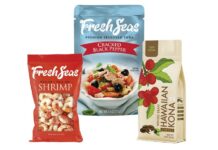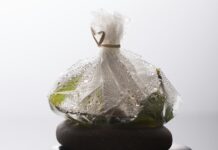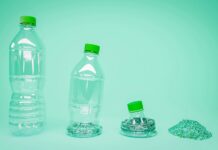A Scottish company is developing a biodegradable food wrapping using waste material from shellfish. Cuantec is extracting a natural substance called chitin from shells after processing langoustines.
The chitin is turned into a more soluble product, chitosan, for the manufacture of a clear film. Cuantec says its process for extracting chitin uses less chemicals and is more environmentally friendly than conventional methods.
While still in development, a major supermarket chain is already interested in using it for packaging fish. Chitin is a natural substance known as a biopolymer and it is found in the casings and shells of insects and shellfish.
It is already used in the making of medicines, pesticides, fertilisers and as an edible film on foods. Cuantec, which has sites in Motherwell and Dunstaffnage, near Oban, says its method for extracting chitin uses less harmful chemicals.
The company’s Dr Cait Murray-Green said: “To put it bluntly we take the bits of scampi you don’t want to eat and we ferment that in order to extract a natural biopolymer, chitin.
“We use that to create an anti-microbial, completely compostable packaging.” The waste comes from the fish processing industry in Scotland and Northern Ireland. Chitin is extracted by fermenting the shells in a bacteria in a process similar to one used for making beer or yogurt.
Later the powdery chitin is turned into chitosan using sodium hydroxide, but Cuantec says it uses one fifth of the compound consumed in more usual methods.
A manufacturer then uses the chitosan to make the packaging. Cuantec is developing the wrap to biodegrade within 90 days. Waitrose has expressed interest in using the packaging for smoked salmon. Judy Fish, who runs the Applecross Inn in the Highlands, said she would welcome the chance to put leftovers from the langoustine served at her restaurant to other uses.
In the summer holiday season, the inn can see 60kg of leftovers generated in a week. Ms Fish said: “It has to be double bagged in biodegradable bags because of the smell before it’s disposed of. “Anything that can be recycled, upcycled or used we would support 100%.”
WWF Scotland said it would encourage businesses and government to continue to invest in finding alternative solutions to single-use plastics.
Director Lang Banks said: “Plastic pollution of our oceans is perhaps the most visible example of the environmental crisis we are currently facing – with 90% of the world’s sea birds having been found with fragments of plastic in their stomachs. “Reducing the amount of fossil fuel-based plastics in society by repurposing natural materials that might otherwise have gone to waste is exactly the type of innovation we need to see more of.”



























